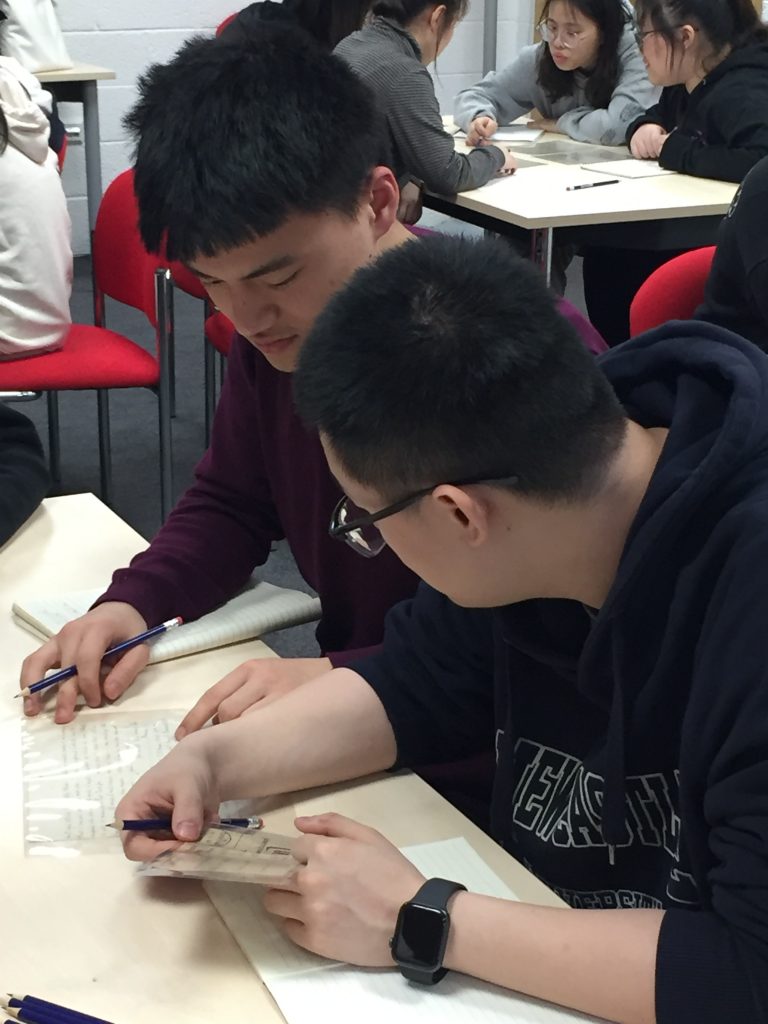Alexandra Corrin, Module Leader for Humanities and Social Science
INTO Newcastle University
Humanities and Social Sciences
What did you do?
In these sessions, students visit Special Collections in the University Library to read letters written by servicemen during World War One, and use the letters as the basis for group discussion on themes of identity and culture.
Who is involved?
Ruth Sheret, Archivist, Special Collections, Newcastle University Library
Alexandra Corrin, INTO Foundation in Business & Humanities
Module Leader: Humanities & Social Sciences

How did you do it?
Students read letters from the Baker Brown (Thomas) Archive and the Pattinson (Sir Lawrence) Archive and initially analyse the letters in small groups using worksheet style prompt sheets. This is followed by feedback and wider whole-class discussion, supported by projected images of the letters. Each group is deliberately given source material which illustrates different aspects of Thomas Baker Brown and Lawrence Pattinson’s war experiences, so that only during the final whole class discussion will comparative analysis of the two men and their war experiences fully emerge.
Analysis of identity and culture are developed through letter content but students also probe the tone of the letters, and analyse changes in tone depending on audience, personality, coping mechanisms, and personal perspectives of war. Students are also encouraged to further develop their ideas around letters as primary sources and the benefits and limits for letter sources to reveal complex human experience.
Student Voice
‘Because it is material written by someone alive at the time – this is the big value of these sessions.’
‘It allowed us to see the true experiences of people at War. It makes us feel empathetic.’
‘Seeing an authentic letter from WWI was a pretty surreal moment. ‘
INTO Foundation Students
Why did you do it?
INTO Foundation students have been studying the Great War as part of their British Culture module. They have explored other source types such as Great War poetry, propaganda posters and novels, and the archive letters provide another type of primary source – lending authenticity to their studies and heightening engagement. The experience of being in the Special Collections area, reading these letters as a group, builds on this holistic understanding of World War One and raises students’ awareness of the potential of the archives as a resource for their undergraduate studies.
Does it work?
In response to consistently positive feedback from students, this project has been embedded in the module now for 4 years. In addition to supporting broader module objectives, this experience has also given the students the confidence to pursue independent archival research for summative presentation projects.
Contact details
 Alexandra Corrin, Module Leader for Humanities and Social Science, INTO Newcastle University
Alexandra Corrin, Module Leader for Humanities and Social Science, INTO Newcastle University
